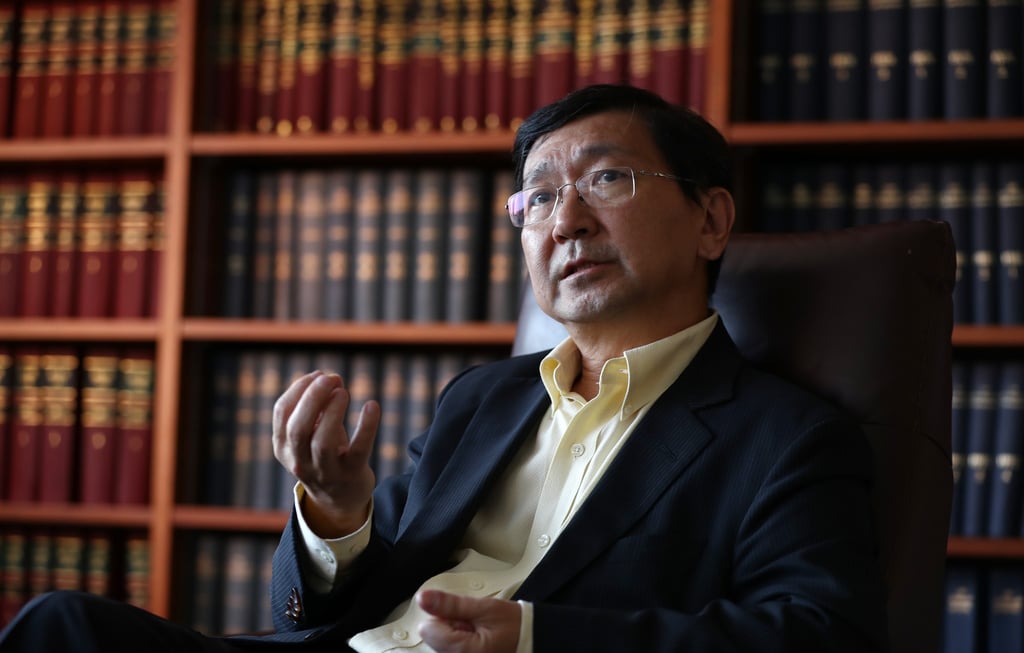Beijing hits out at foreign critics of Hong Kong court’s conviction of Stand News editors
A spokesman for the Embassy of the People’s Republic of China in the United Kingdom of Great Britain and Northern Ireland said Hong Kong was a society governed by the rule of law, and its laws protected freedom of press and speech while duly punishing criminals.
“This is the proper meaning of the rule of law. It is completely inappropriate and unacceptable for British officials to defend those suspected of committing crimes, and make arbitrary comments on the hearing of criminal cases in Hong Kong courts,” he said, adding the UK should stop interfering in China’s internal affairs and the exercise of the rule of law in Hong Kong.
The spokesman was responding to remarks by Britain’s Indo-Pacific minister Catherine West, who defended the two editors on social media.
“Journalism is not a crime,” she earlier posted on X, saying the convicted editors had merely been doing their jobs and calling on Hong Kong authorities to “end politicised prosecutions of journalists and uphold press and publication freedoms” as spelled out by the Basic Law, the city’s mini constitution.
A spokesman for the Commissioner’s Office of the Ministry of Foreign Affairs in Hong Kong expressed “strong dissatisfaction and firm opposition to the irresponsible remarks” made by foreign governments, including those of the United States, the United Kingdom and the European Union, against the city’s legal system.
He said that Stand News was a political organisation with an anti-China stance that had lost the impartiality that any media company should have.
“Western politicians use press freedom as a political tool to defend anti-China and anti-Hong Kong organisations, scandalise and attack the rule of law and justice, and advocate the [idea of a] so-called chilling effect,” he said.
“They are completely confusing right with wrong and misleading,” he added.
Among other foreign critics of the court ruling were US State Department spokesman Matthew Miller, who also wrote on X that the convictions were a “direct attack on media freedom” and undermined the city’s international reputation for openness.
“We urge Beijing and Hong Kong authorities to restore and uphold rights guaranteed in the Basic Law,” he said.
The European Union also said in a statement that the conviction is another sign of the diminishing space for press freedoms guaranteed under the Basic Law.

“The ruling risks further inhibiting the pluralistic exchange of ideas and the free flow of information, both cornerstones of the economic success of Hong Kong,” it said.
Meanwhile, professor Johannes Chan Man-mun, a former law dean at the University of Hong Kong, said on a radio programme on Friday that the verdict presented more challenges for scholars and commentators to write think pieces that were critical of the government.
He noted that the court held that Stand News had offered a platform for fostering hatred against Beijing and city authorities with the publication of 11 reports between July 2020 and December 2021.
“But to me, those articles in most cases were only abusive,” he said, explaining there needed to be a distinction between abusive remarks and those that “actually stoked hatred”.
The verdict also did not fully address whether inciting violence had to be proved in a sedition case, he added.
“The court’s viewpoint is that remarks having no factual base and hitting out at someone could not be regarded as a valid defence argument. Freedom of speech will now be confined to polite academic discussions,” Chan said.
He also expressed the view that picking out 11 out of 20,000 articles published by Stand News during the 18-month period was an “unacceptably small number” as a basis for conviction.